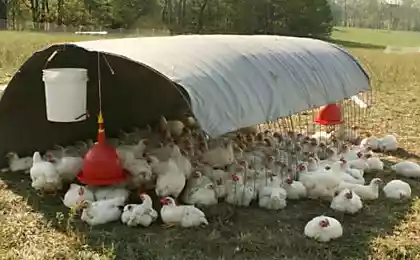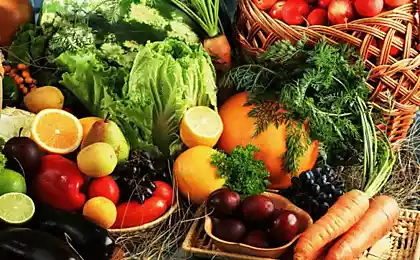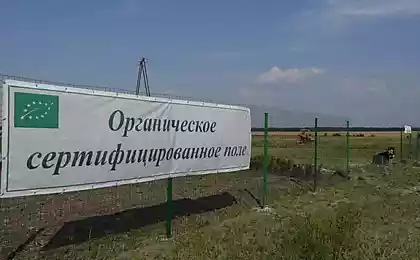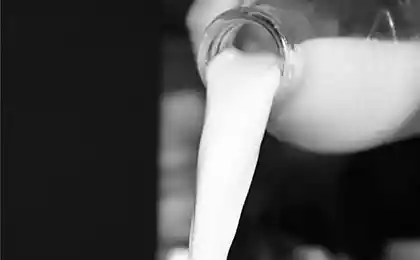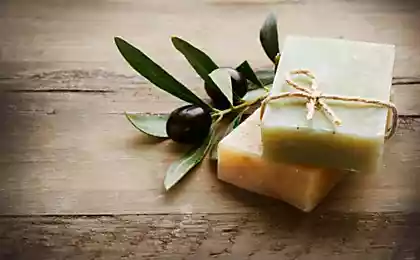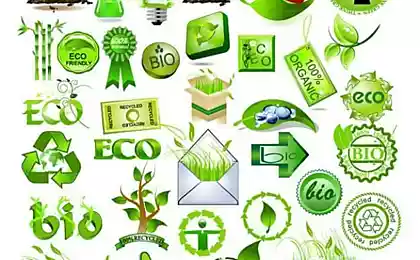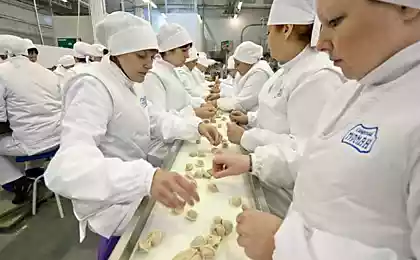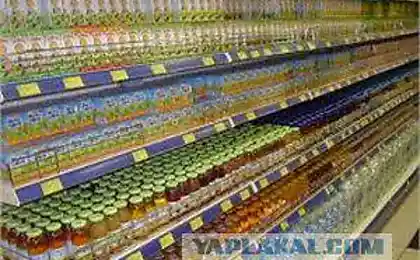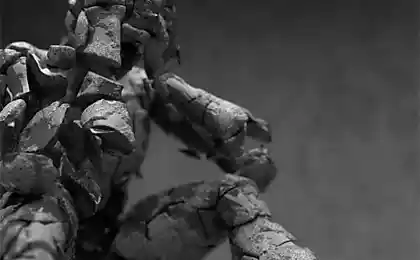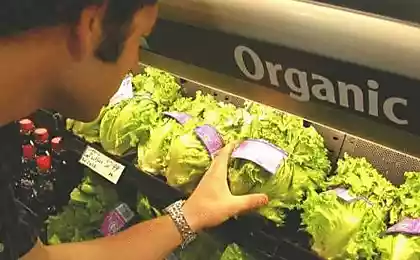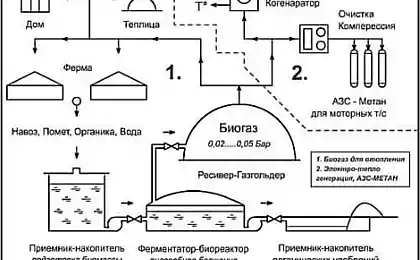501
The law on organic production is on the way
The Russian government is discussing the fifth version of the draft law on organic production. Once it passes, the only registered producers will have the right to place on the packaging of their products the word "organic".
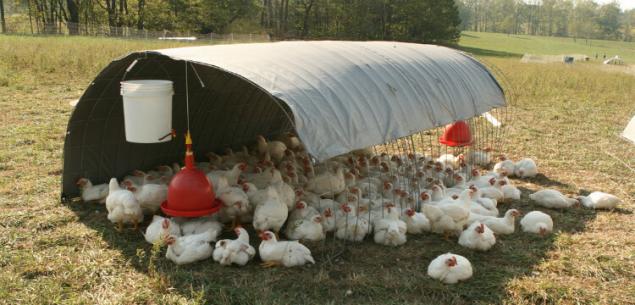
Hens on an organic farm, 2007
The Russian government is discussing a law on organic production. This short document, containing only a dozen of articles, developed in the fifth variant, the first of which appeared in 2012. The main debate took place between officials who are included in the document norm about compulsory registration of organic producers, and the producers who wanted to register under the self-regulatory organization.
In addition, the Finance Ministry is worried about the existence of the bill article about the state support of producers of organic products — whatever happened squandering of budget funds.
The result of this discussion is to be expected. First, the officials won entrepreneurs: from the latest version of the document disappeared, even the mention of the participation of the unions of agricultural producers in the development of organic production, although in the first version of this document was a topic of a separate article — article 6. Secondly, the Ministry of Finance has won them all, and the mention of state support has been reduced to the modest statement that she producers of organic products will be provided along with other agricultural organizations.
The result is the main point of the bill came down to the fact that organic products will get a special marking, the use of which can only manufacturers that have passed the check and certification by the authorized government Agency (most likely, it will be the Ministry of agriculture).
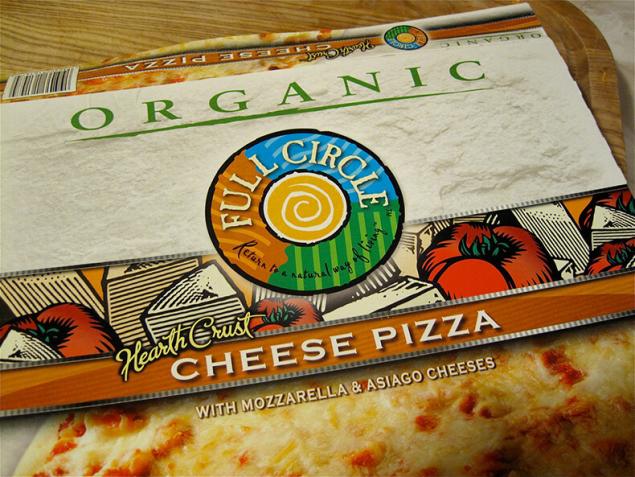
Organic pizza. 2009
Manufacturers of organic, naturally there are not satisfied, but potential users from this law and nothing else is needed. Because now labeled "organic" on their products, put all and Sundry. Although, as noted in the explanatory Memorandum to the bill, "of all such products is really organic is only 2%". After the law to this disgrace the end will come.
Organic GOST
Paradoxically, with the booming fashion for organic products, a clear idea of what it is in Russia until recently did not exist. But from January 1, 2016, the company launched a national standard for organic production — GOST R 56508-2015 "organic Products. The rules of production, storage, transportation". In this document, eight pages of dozens of thoroughly explained what products can be sold as organic.
In particular, organic products must be produced without agrochemicals, pesticides, antibiotics, hormonal agents and growth promoters of animals and plants. Organic plants must be grown in areas remote from the polluting objects such as roads, factories, and so on. Fully prohibited the use of nitrogen fertilizers and hydroponics (growing plants without soil in the substrate with a solution of nutrients). Of course, the possible use of genetically modified plants.
For weed control you can use only mechanical weeding or burning, but no chemistry. For the treatment plants cannot use synthetic medications and allowed pests to contend with birds, insects or bacteria.
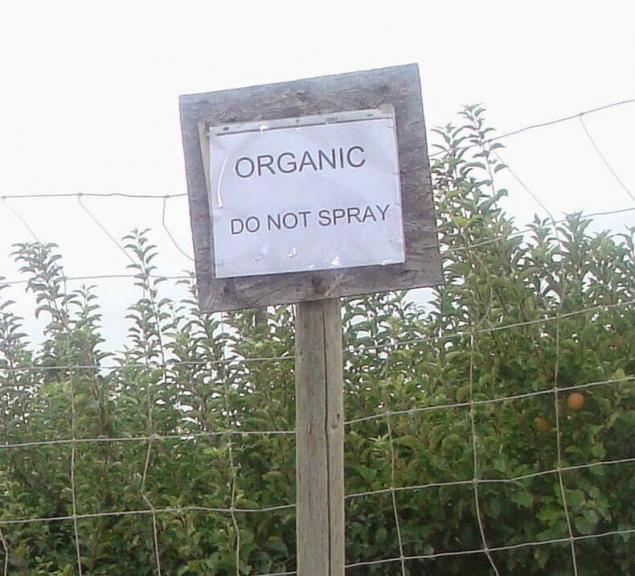
Organic farm in the United States. 2009
Livestock is only permitted the use of fodder obtained as a result of organic production. Cows, pigs, chickens and other animals must be ensured a longer stay in the fresh air.
In the production of organic food processing of agricultural raw materials must be "predominantly biological, mechanical and physical methods." Of course, raw only use organic flavorings — just natural.
According to GOST, "organic food products must contain a minimum of 95% ingredients of organic agricultural origin (excluding the mass of salt and water)". Packaging of organic products should have a minimal negative impact on production and the environment, it is not allowed the use of polyvinyl chloride (PVC).
And thick-a thick layer of litter
Along with a clear technological requirements in the Guest organic products attract attention demands moral and ethical. About fact, the owner's responsibility to make the lives of agricultural animals most happy: "during the entire life of the animal, including at the time of sacrifice, any suffering, including surgical intervention, should be minimized.
Prohibits the keeping of animals in isolation, as well as "tail docking, biting fangs, shortening of beaks and dehorning". Not to mention the fact that pigs should be provided with a thick layer of litter in which they could dig in the pleasure.
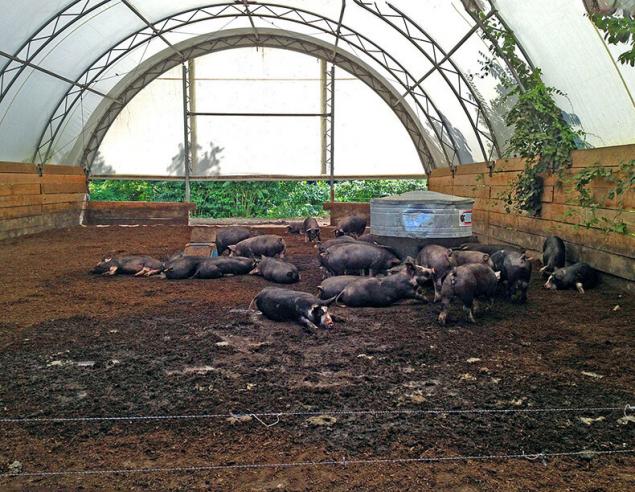
The piggery on an organic farm. 2013
Such requirements — a tribute to the history of the origin of organic production, which is counted since 1924. Then the Austro-German philosopher Rudolf Steiner offered the world the concept of biodynamic farming, a Spiritual-scientific basis of the successful development of agriculture." After the Second world war in Europe and the United States began to appear movement for organic production, based on the ideas of Steiner, and in the sixties his philosophy was very popular among hippies.
However, in a truly massive cult organic production began to develop in the eighties, in the Wake of the development of the global green movement and healthy nutrition. By the mid-eighties in many developed countries had already developed clear and unambiguous criteria according to which the farm and its products can be considered organic.
The main requirement is to minimize the reduction of damage to the environment and reducing the use of artificial materials. In the details of national standards differ widely. For example, in France there are restrictions on noise pollution of pastures dairy cows — cows do not need to be nervous!
Over the past 15 years — from 1999 through 2015 the world market for organic products has grown six times from $ 15 billion to 90 billion.
According to the International Federation movements of organic agriculture (IFOAM), in the last years of the last century organic agriculture has been growing at 10-15% per year, compared to 2-3% growth of traditional agriculture.
Quirks of the rich
96% of the world today organic matter consumed in the United States, Western Europe and Japan. Even during the crisis the number of citizens of the developed countries, willing to pay extra for organic products is constantly growing under the influence of the constant talk about the dangers of "industrial" agricultural products.
Demand creates supply — the number of countries and companies producing organic products is constantly growing. In the development of agricultural production, expressly prohibits the use of expensive chemicals and machinery, saw a chance of underdeveloped countries. The result is the most organic producers registered in India, Uganda and Mexico.
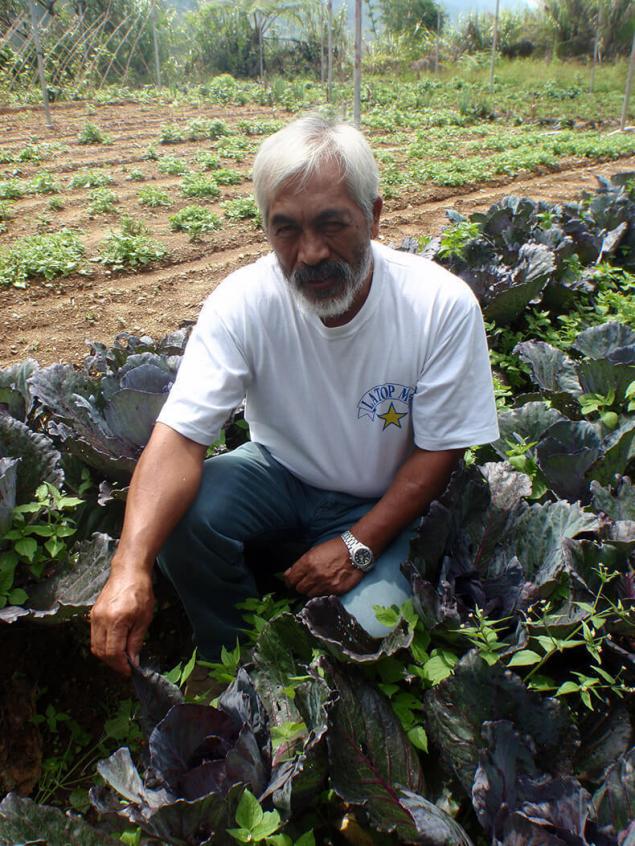
An organic farmer in the Philippines. 2011
Russian farmers and officials also dream to become one of them — as noted in the explanatory note to the draft law on the development of organic production in our country more than 40 million hectares of arable land for many years does not processed and therefore may be an excellent basis for the development of organic production.
But there are plenty of skeptics. They point, in particular, that due to the short shelf life of organic products, in this business the special role played by the proximity of producer to buyer. The majority of regions of Russia simply will not be able to supply organic products for export due to logistical constraints. And domestically, the demand for these products is small: in the face of declining incomes, fewer Russians are willing to pay for the food two to three times normal prices.
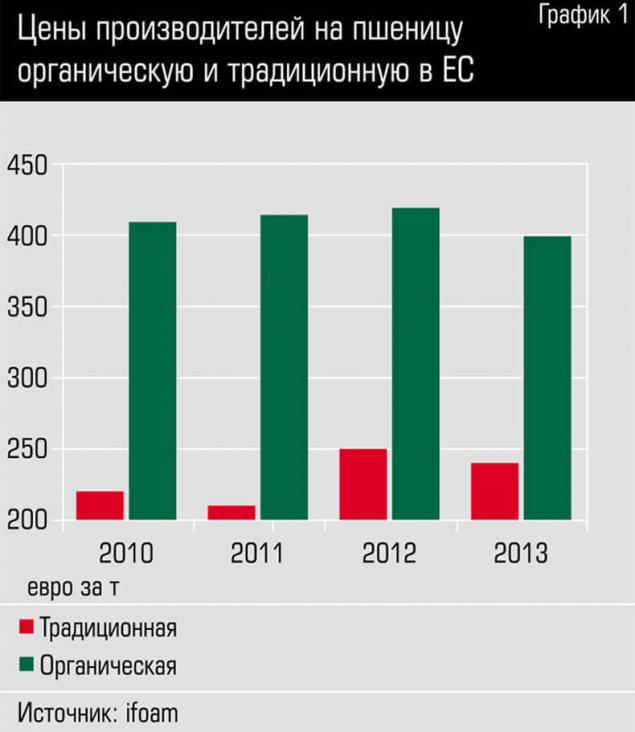
Organic products are significantly more expensive than traditional
Moreover, as reported by Institute of nutrition, in Russia much faster than in developed countries, a growing number of diseases associated with impaired nutritional status. This is because more and more of our citizens are forced to increase in the diet proportion of cheap flour products.published
P. S. And remember, only by changing their consumption — together we change the world! ©
Join us in Facebook , Vkontakte, Odnoklassniki
Source: www.livejournal.com/magazine/1457605.html

Hens on an organic farm, 2007
The Russian government is discussing a law on organic production. This short document, containing only a dozen of articles, developed in the fifth variant, the first of which appeared in 2012. The main debate took place between officials who are included in the document norm about compulsory registration of organic producers, and the producers who wanted to register under the self-regulatory organization.
In addition, the Finance Ministry is worried about the existence of the bill article about the state support of producers of organic products — whatever happened squandering of budget funds.
The result of this discussion is to be expected. First, the officials won entrepreneurs: from the latest version of the document disappeared, even the mention of the participation of the unions of agricultural producers in the development of organic production, although in the first version of this document was a topic of a separate article — article 6. Secondly, the Ministry of Finance has won them all, and the mention of state support has been reduced to the modest statement that she producers of organic products will be provided along with other agricultural organizations.
The result is the main point of the bill came down to the fact that organic products will get a special marking, the use of which can only manufacturers that have passed the check and certification by the authorized government Agency (most likely, it will be the Ministry of agriculture).

Organic pizza. 2009
Manufacturers of organic, naturally there are not satisfied, but potential users from this law and nothing else is needed. Because now labeled "organic" on their products, put all and Sundry. Although, as noted in the explanatory Memorandum to the bill, "of all such products is really organic is only 2%". After the law to this disgrace the end will come.
Organic GOST
Paradoxically, with the booming fashion for organic products, a clear idea of what it is in Russia until recently did not exist. But from January 1, 2016, the company launched a national standard for organic production — GOST R 56508-2015 "organic Products. The rules of production, storage, transportation". In this document, eight pages of dozens of thoroughly explained what products can be sold as organic.
In particular, organic products must be produced without agrochemicals, pesticides, antibiotics, hormonal agents and growth promoters of animals and plants. Organic plants must be grown in areas remote from the polluting objects such as roads, factories, and so on. Fully prohibited the use of nitrogen fertilizers and hydroponics (growing plants without soil in the substrate with a solution of nutrients). Of course, the possible use of genetically modified plants.
For weed control you can use only mechanical weeding or burning, but no chemistry. For the treatment plants cannot use synthetic medications and allowed pests to contend with birds, insects or bacteria.

Organic farm in the United States. 2009
Livestock is only permitted the use of fodder obtained as a result of organic production. Cows, pigs, chickens and other animals must be ensured a longer stay in the fresh air.
In the production of organic food processing of agricultural raw materials must be "predominantly biological, mechanical and physical methods." Of course, raw only use organic flavorings — just natural.
According to GOST, "organic food products must contain a minimum of 95% ingredients of organic agricultural origin (excluding the mass of salt and water)". Packaging of organic products should have a minimal negative impact on production and the environment, it is not allowed the use of polyvinyl chloride (PVC).
And thick-a thick layer of litter
Along with a clear technological requirements in the Guest organic products attract attention demands moral and ethical. About fact, the owner's responsibility to make the lives of agricultural animals most happy: "during the entire life of the animal, including at the time of sacrifice, any suffering, including surgical intervention, should be minimized.
Prohibits the keeping of animals in isolation, as well as "tail docking, biting fangs, shortening of beaks and dehorning". Not to mention the fact that pigs should be provided with a thick layer of litter in which they could dig in the pleasure.

The piggery on an organic farm. 2013
Such requirements — a tribute to the history of the origin of organic production, which is counted since 1924. Then the Austro-German philosopher Rudolf Steiner offered the world the concept of biodynamic farming, a Spiritual-scientific basis of the successful development of agriculture." After the Second world war in Europe and the United States began to appear movement for organic production, based on the ideas of Steiner, and in the sixties his philosophy was very popular among hippies.
However, in a truly massive cult organic production began to develop in the eighties, in the Wake of the development of the global green movement and healthy nutrition. By the mid-eighties in many developed countries had already developed clear and unambiguous criteria according to which the farm and its products can be considered organic.
The main requirement is to minimize the reduction of damage to the environment and reducing the use of artificial materials. In the details of national standards differ widely. For example, in France there are restrictions on noise pollution of pastures dairy cows — cows do not need to be nervous!
Over the past 15 years — from 1999 through 2015 the world market for organic products has grown six times from $ 15 billion to 90 billion.
According to the International Federation movements of organic agriculture (IFOAM), in the last years of the last century organic agriculture has been growing at 10-15% per year, compared to 2-3% growth of traditional agriculture.
Quirks of the rich
96% of the world today organic matter consumed in the United States, Western Europe and Japan. Even during the crisis the number of citizens of the developed countries, willing to pay extra for organic products is constantly growing under the influence of the constant talk about the dangers of "industrial" agricultural products.
Demand creates supply — the number of countries and companies producing organic products is constantly growing. In the development of agricultural production, expressly prohibits the use of expensive chemicals and machinery, saw a chance of underdeveloped countries. The result is the most organic producers registered in India, Uganda and Mexico.

An organic farmer in the Philippines. 2011
Russian farmers and officials also dream to become one of them — as noted in the explanatory note to the draft law on the development of organic production in our country more than 40 million hectares of arable land for many years does not processed and therefore may be an excellent basis for the development of organic production.
But there are plenty of skeptics. They point, in particular, that due to the short shelf life of organic products, in this business the special role played by the proximity of producer to buyer. The majority of regions of Russia simply will not be able to supply organic products for export due to logistical constraints. And domestically, the demand for these products is small: in the face of declining incomes, fewer Russians are willing to pay for the food two to three times normal prices.

Organic products are significantly more expensive than traditional
Moreover, as reported by Institute of nutrition, in Russia much faster than in developed countries, a growing number of diseases associated with impaired nutritional status. This is because more and more of our citizens are forced to increase in the diet proportion of cheap flour products.published
P. S. And remember, only by changing their consumption — together we change the world! ©
Join us in Facebook , Vkontakte, Odnoklassniki
Source: www.livejournal.com/magazine/1457605.html
10 major mistakes when working on the muscles
The first electropathy appeared in the area of paid Parking in Moscow
